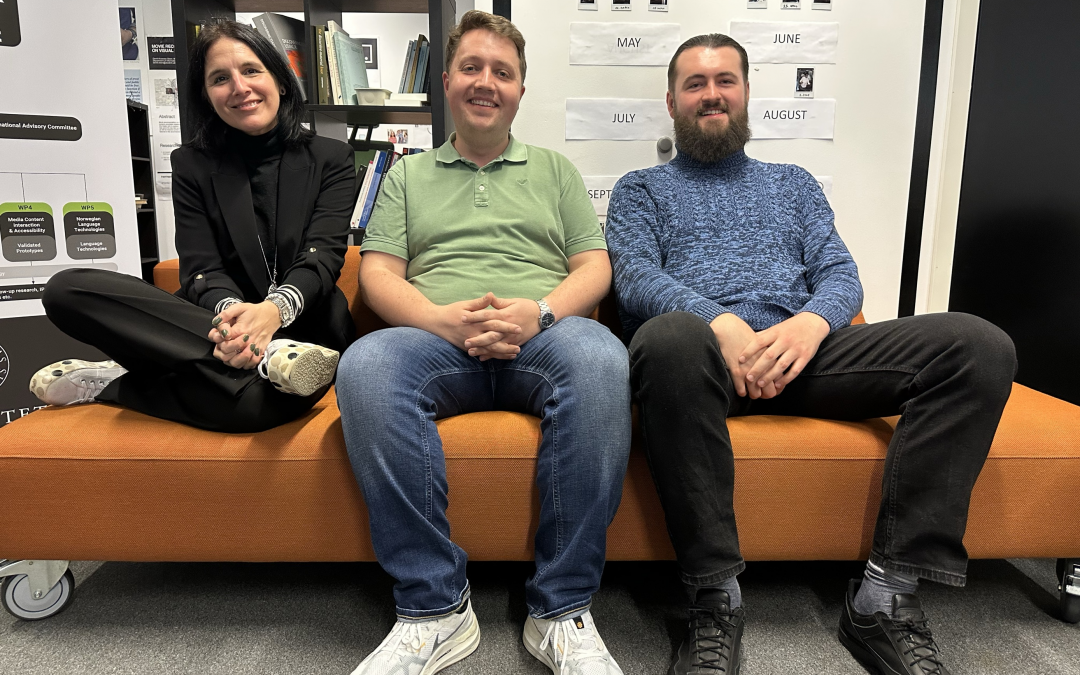Friday 4, MediaFutures hosted a talk series that explored the ethical and environmental dimensions of recommender systems. These discussions emphasized the importance of proactive and sustainable approaches in AI research and development, aligning with MediaFutures’ mission to foster responsible innovation.
The first session, led by Dr. Maria Soledad Pera, Associate Professor at Delft University of Technology, focused on how search and recommender systems shape children’s online experiences. Her talk, titled “Into the AI-Known: How Search and Recommender Systems Shape Children’s Online Experiences & the Path to Safer Information Access”, highlighted the challenges of designing AI systems that cater to young users. Dr. Pera explained how current systems often expose children to harmful or inappropriate content due to a lack of age-appropriate design considerations. She stressed the need for researchers to think beyond relevance and address ethical issues early in the design pipeline. While theoretical guidelines exist, she pointed out that there is insufficient practical guidance on implementing ethical AI for children. Her call to action urged researchers to take proactive measures to ensure that AI systems uphold children’s rights and well-being. This session resonated deeply with MediaFutures’ commitment to creating safer digital environments and emphasized the importance of addressing these challenges to foster a better online experience for young users.
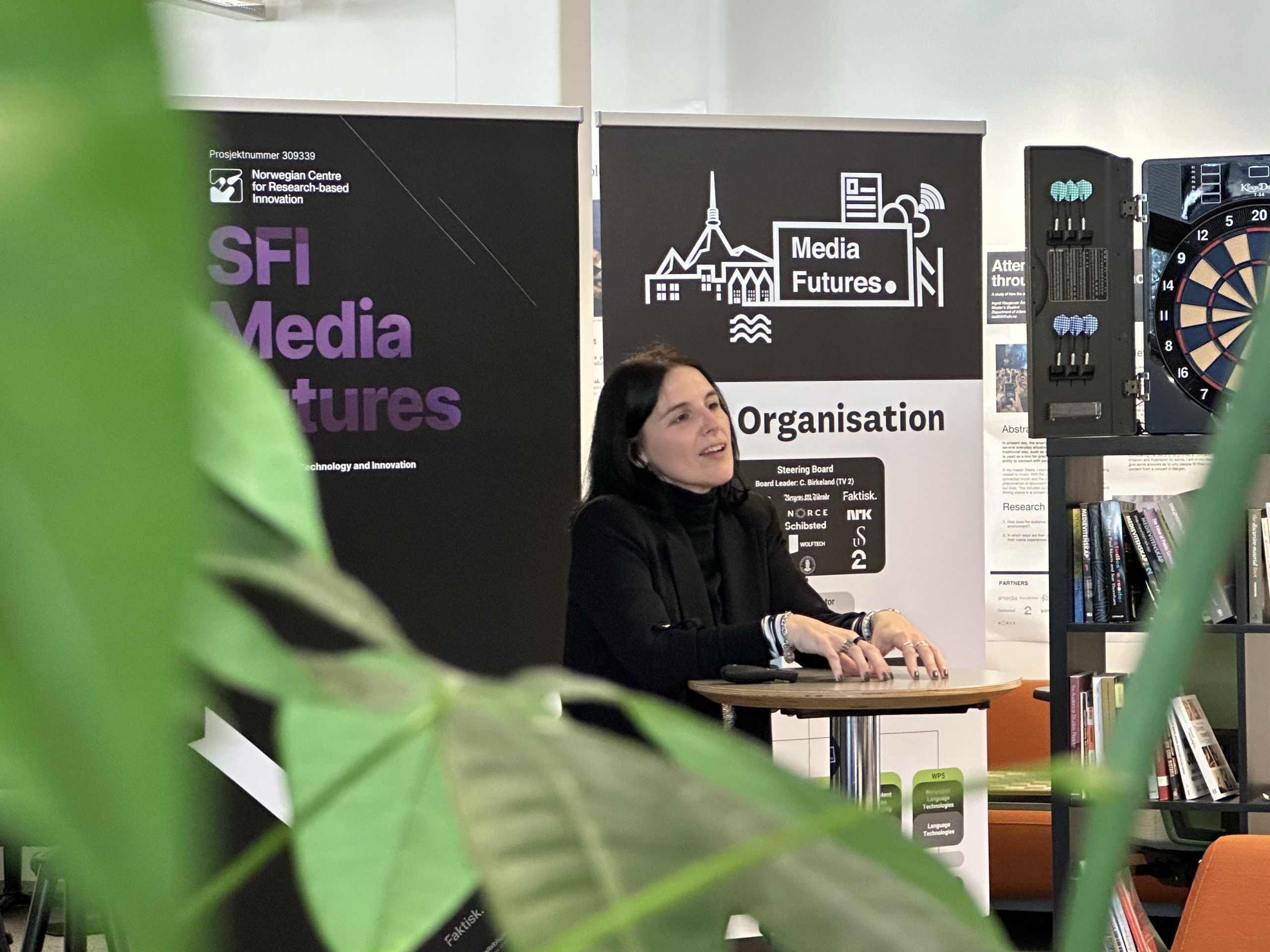
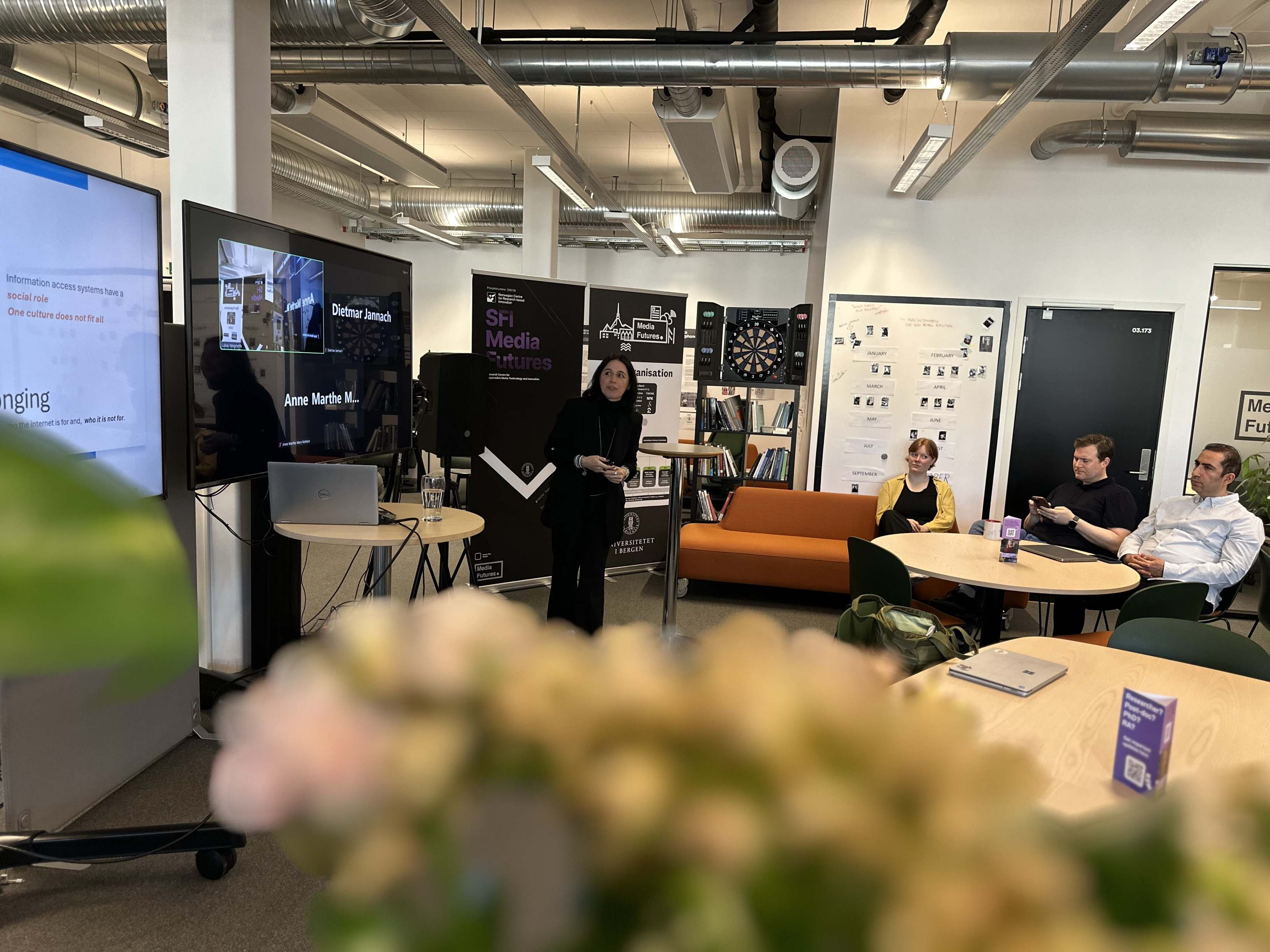
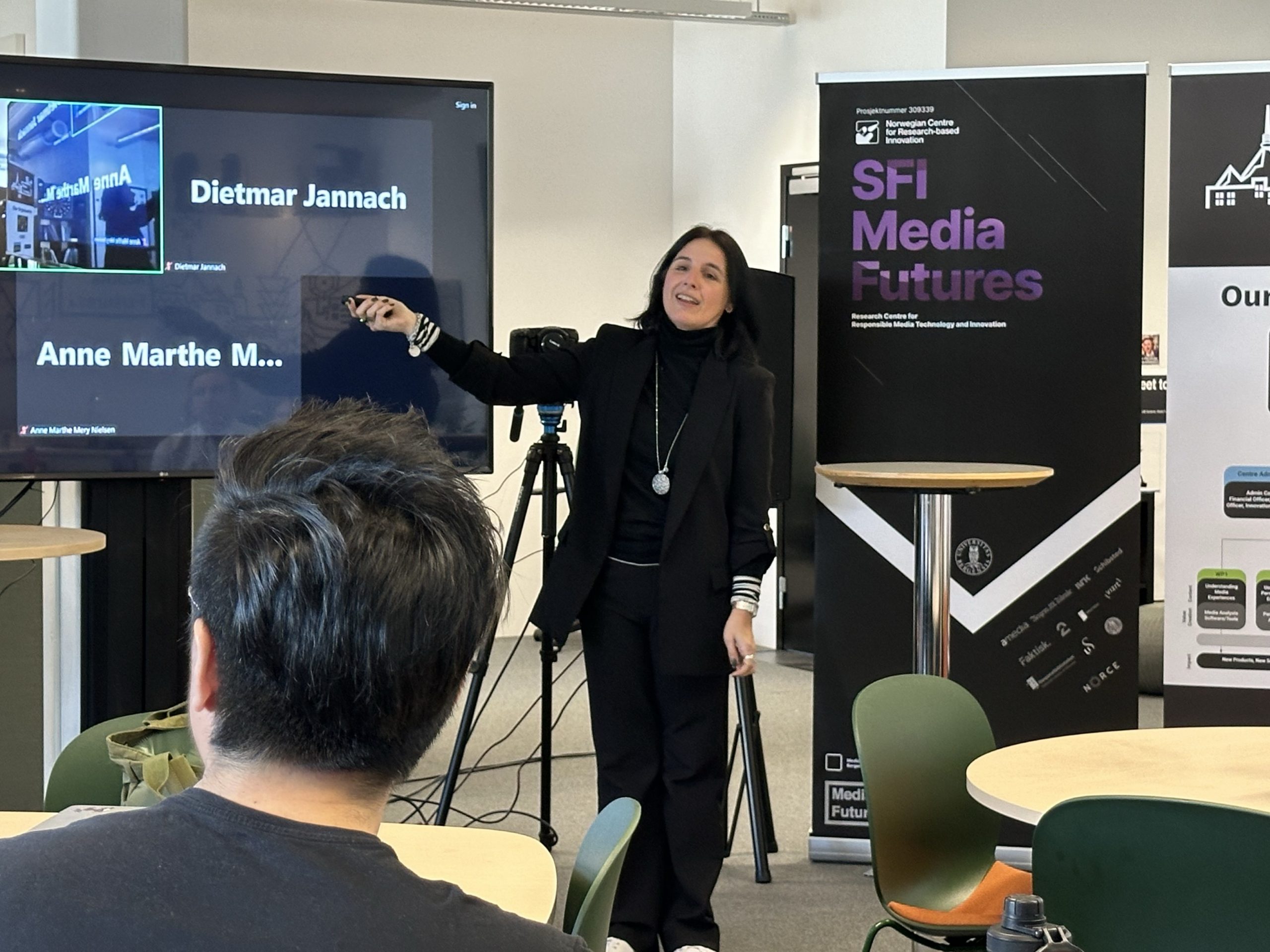
Ungruh, R., Nahadi, M. A. & Pera, M. S., 2025. Mirror, Mirror: Exploring Stereotype Presence Among Top-N Recommendations That May Reach Children. In: ACM Transactions on Recommender Systems.
The second session, presented by Lukas Wegmeth and Tobias Vente, PhD candidates at the University of Siegen, tackled the environmental impact of recommender systems. Their talk, “Green Recommender Systems – Minimizing Carbon Footprint for Sustainable Personalization”, shed light on the significant energy consumption associated with training and inference in recommender systems. They revealed that some experiments emit as much CO₂ as a transcontinental flight, underscoring the urgent need for energy-efficient AI solutions.
One of the key points they raised was that the biggest contributor to emissions in research is bugs in the code, which force researchers to rerun entire pipelines. This highlights the importance of writing efficient, error-free code to minimize unnecessary energy consumption. The speakers also discussed strategies to reduce energy use, such as selecting efficient algorithms, using renewable energy sources, and minimizing computational overhead. They introduced EMERS, a smart plugin designed to measure the energy consumption of experiments, promoting transparency and accountability in AI research.
This session emphasized the need for sustainability in AI development and encouraged researchers to consider the environmental impact of their work. By addressing these challenges, we can strive for solutions that balance performance with ecological responsibility.
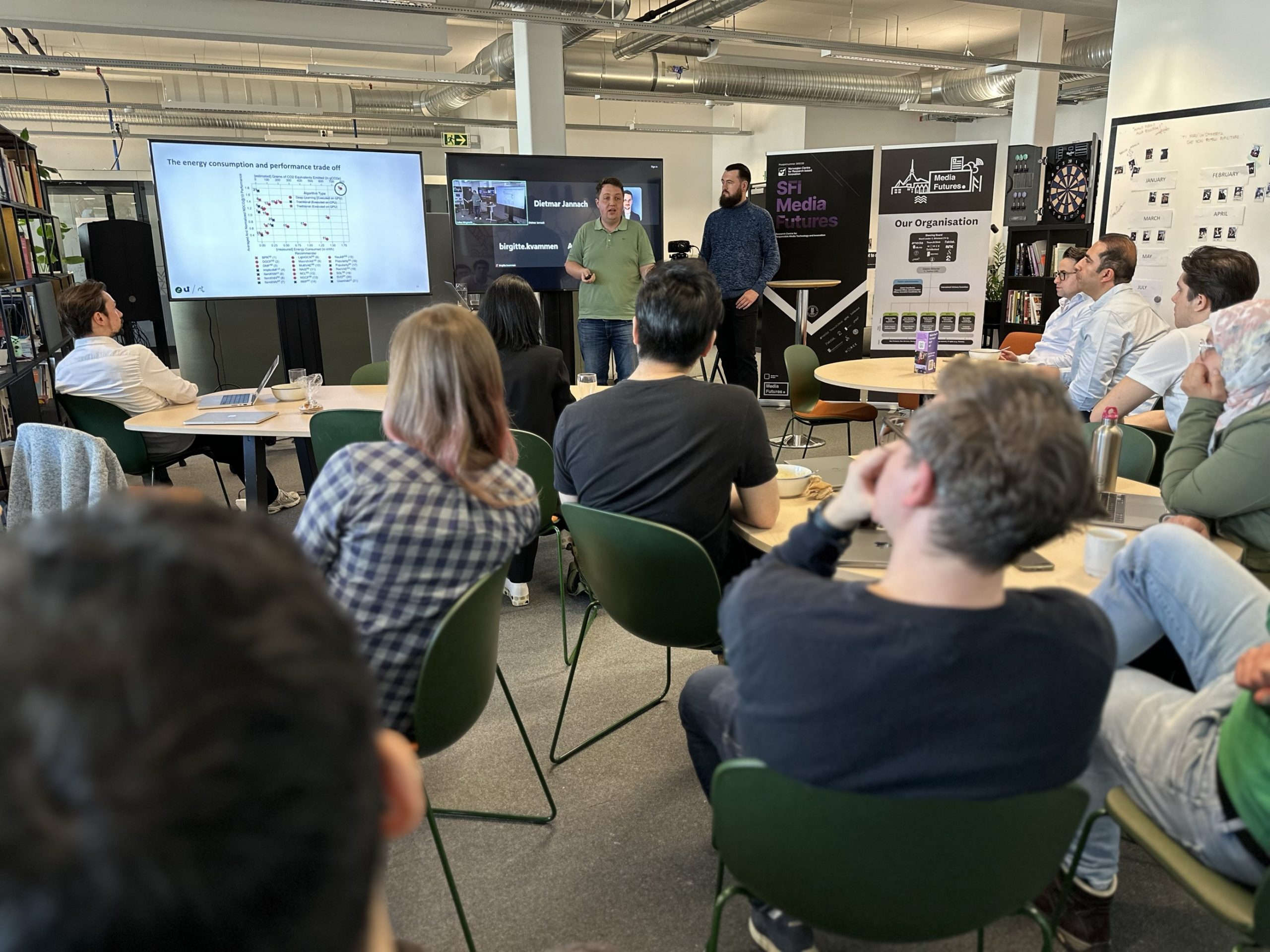
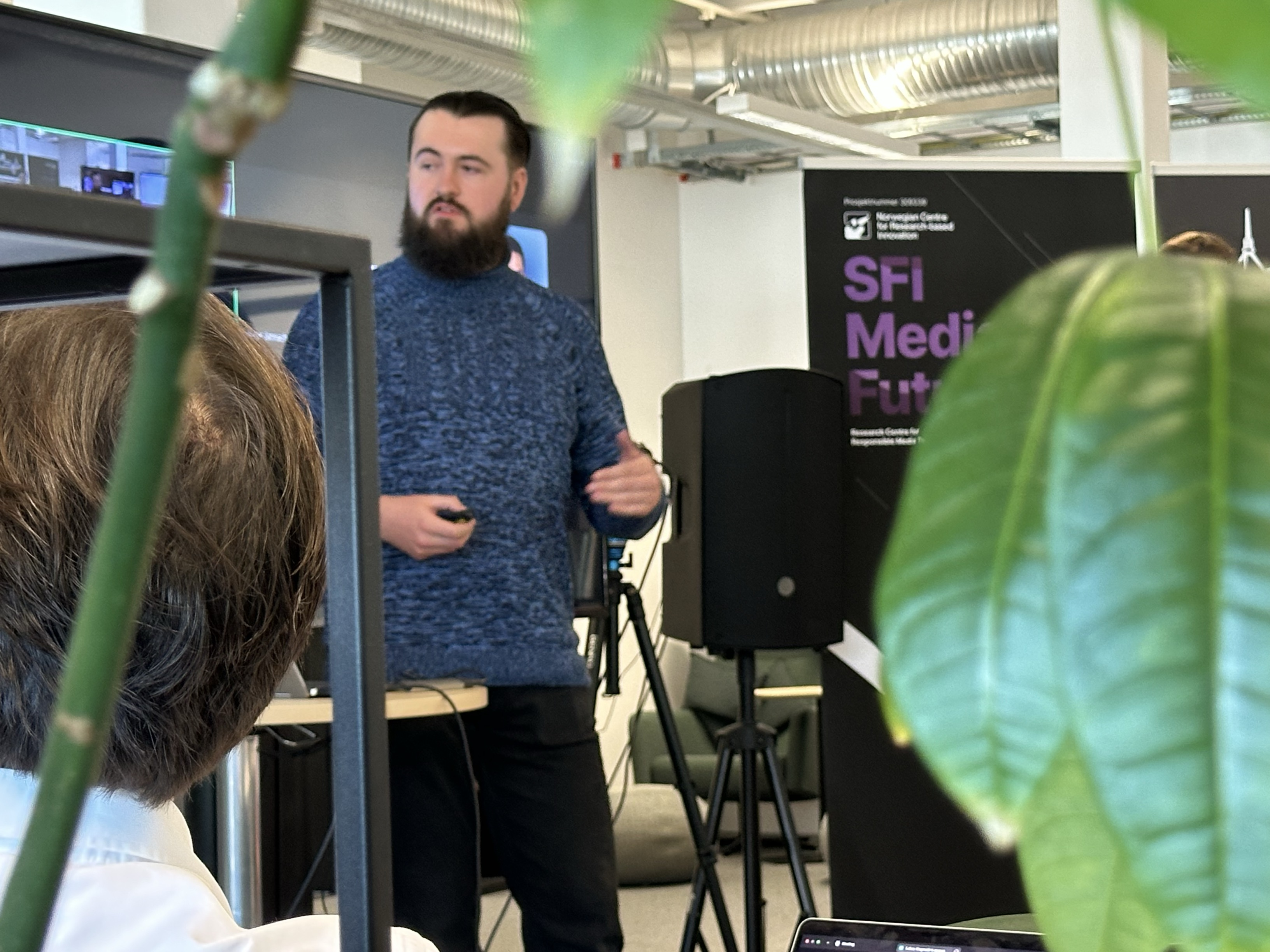
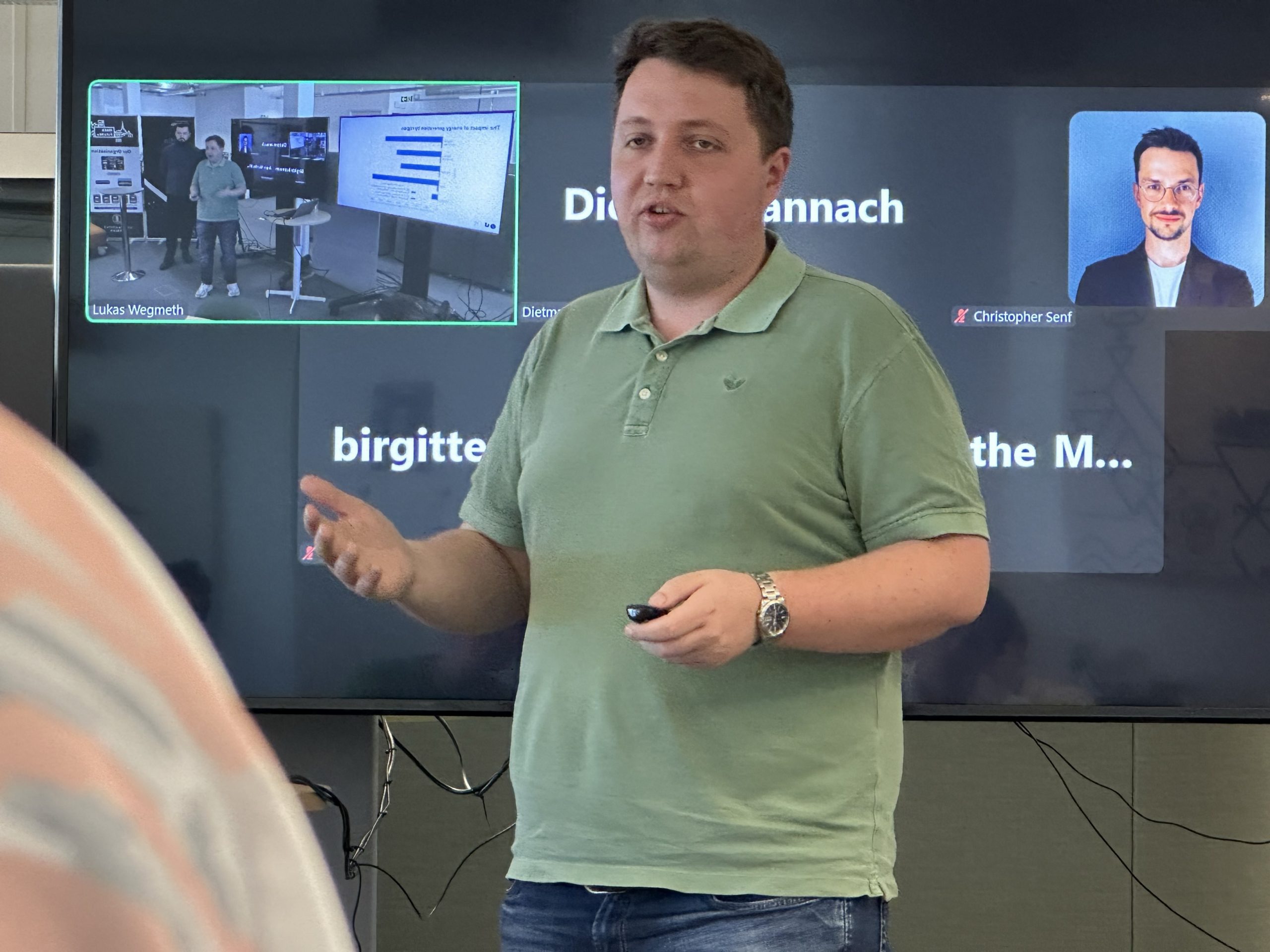
These talks reflect MediaFutures’ commitment to advancing responsible media technology and improving how we conduct research in this field. At MediaFutures, we aim to foster collaboration and share knowledge to address the challenges posed by AI-driven systems in media. By focusing on ethical, inclusive, and sustainable innovation, we strive to create technologies that benefit both society and the media industry.
Today’s discussions are an important step in sharing research on responsible media and media technology. They also highlight ways to improve how we approach research, from addressing ethical concerns to reducing environmental impact. By learning from these insights, we can collectively work towards better practices and solutions that shape a more responsible and sustainable future for media technologies.

